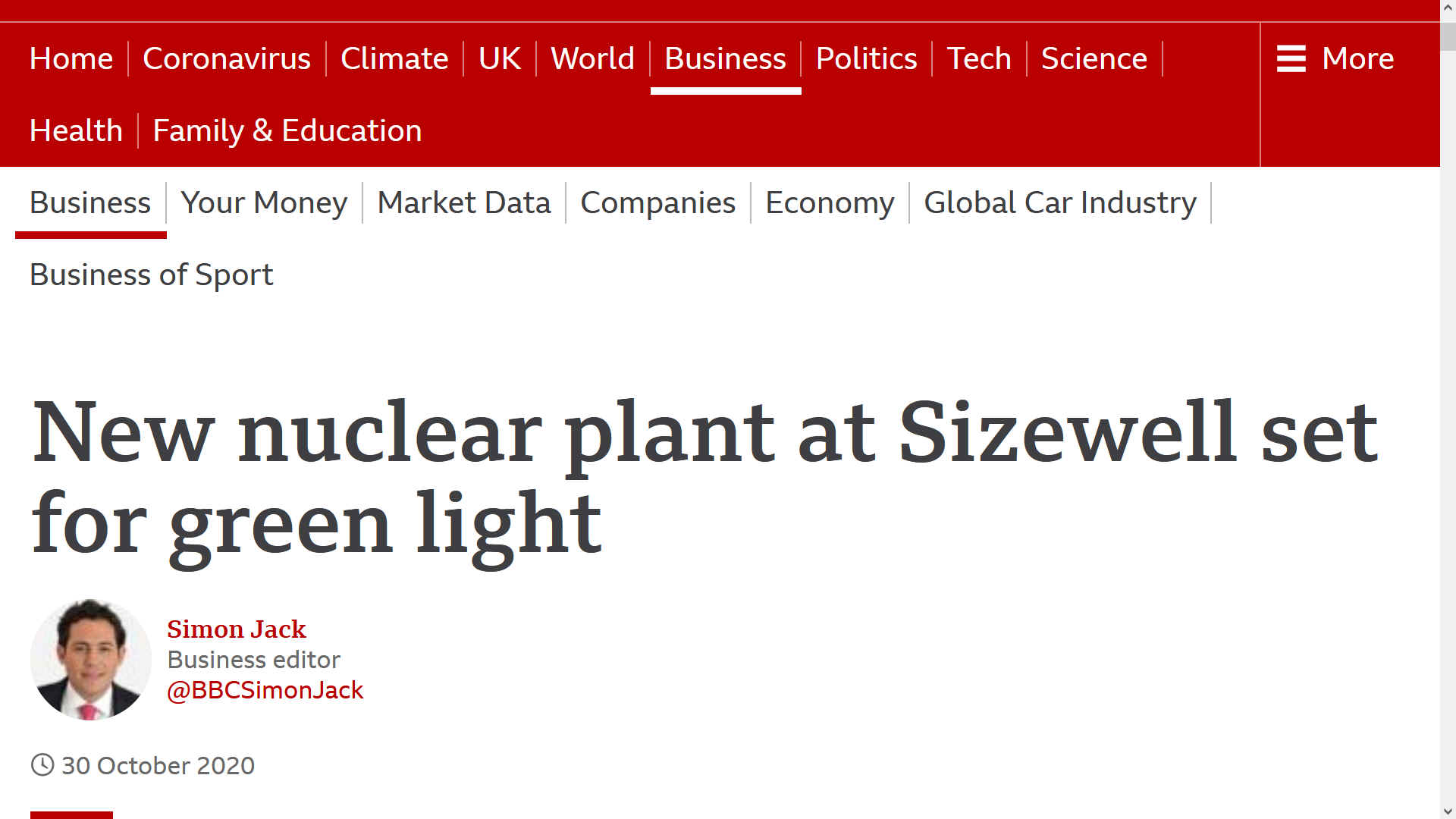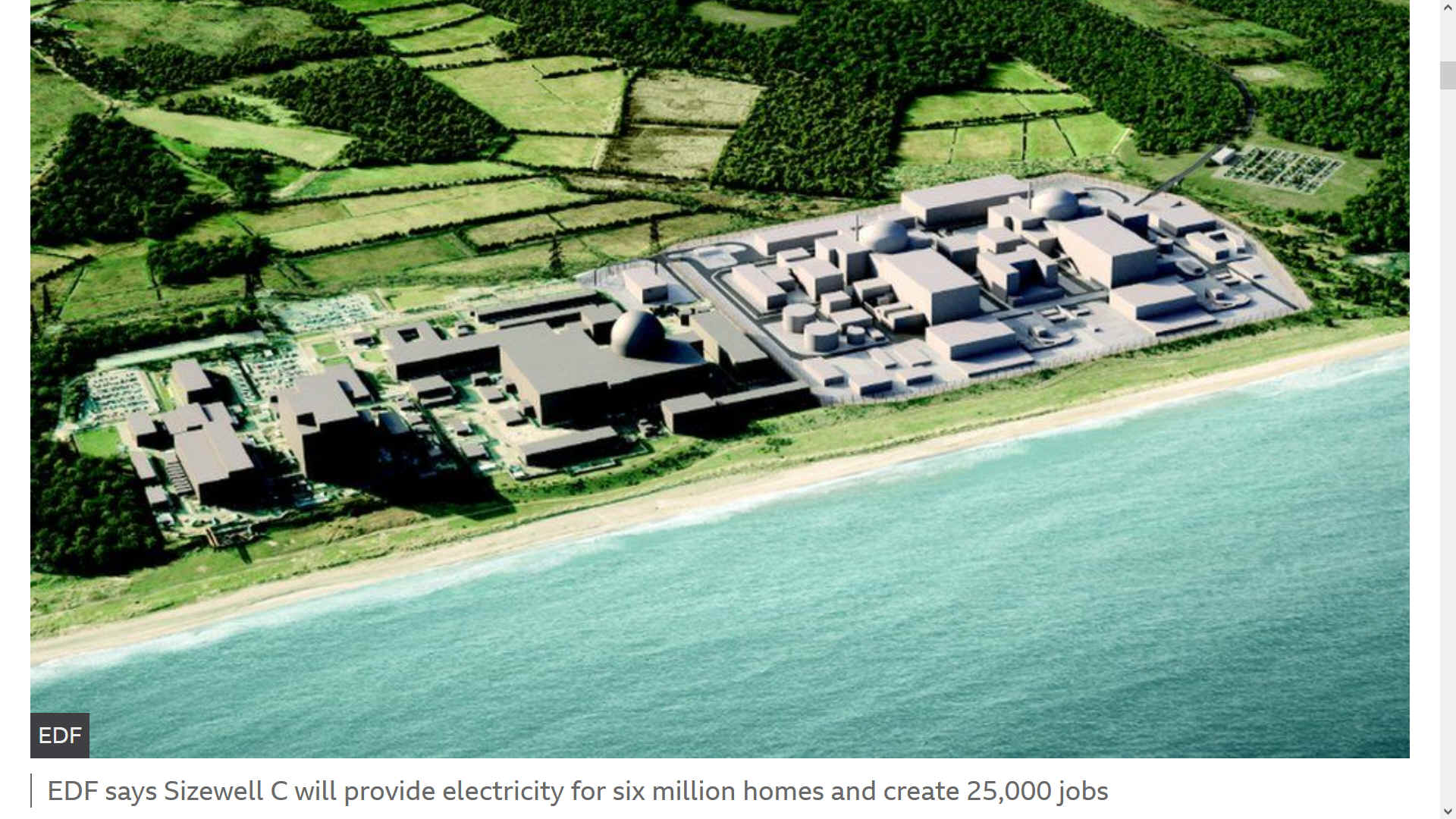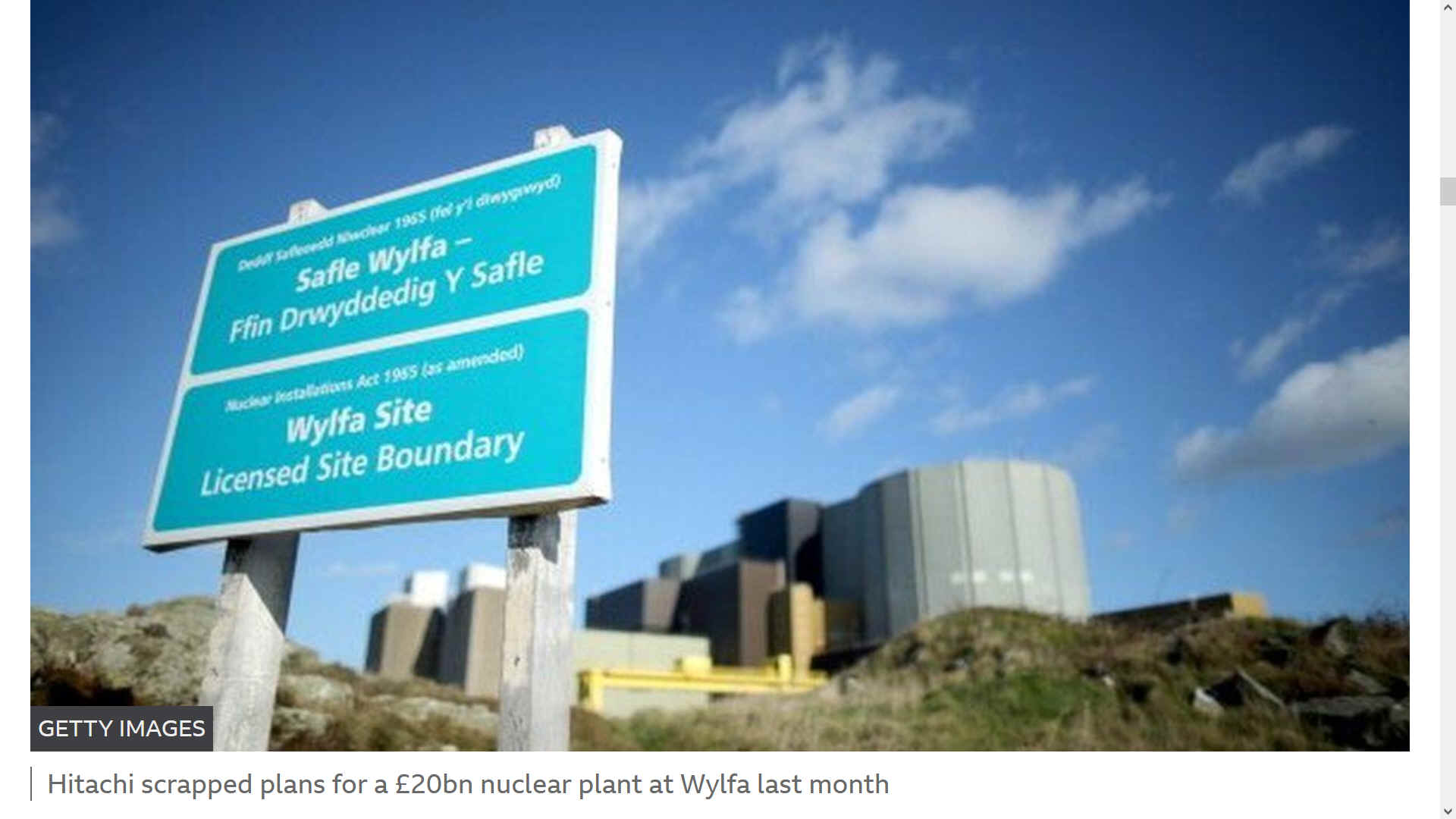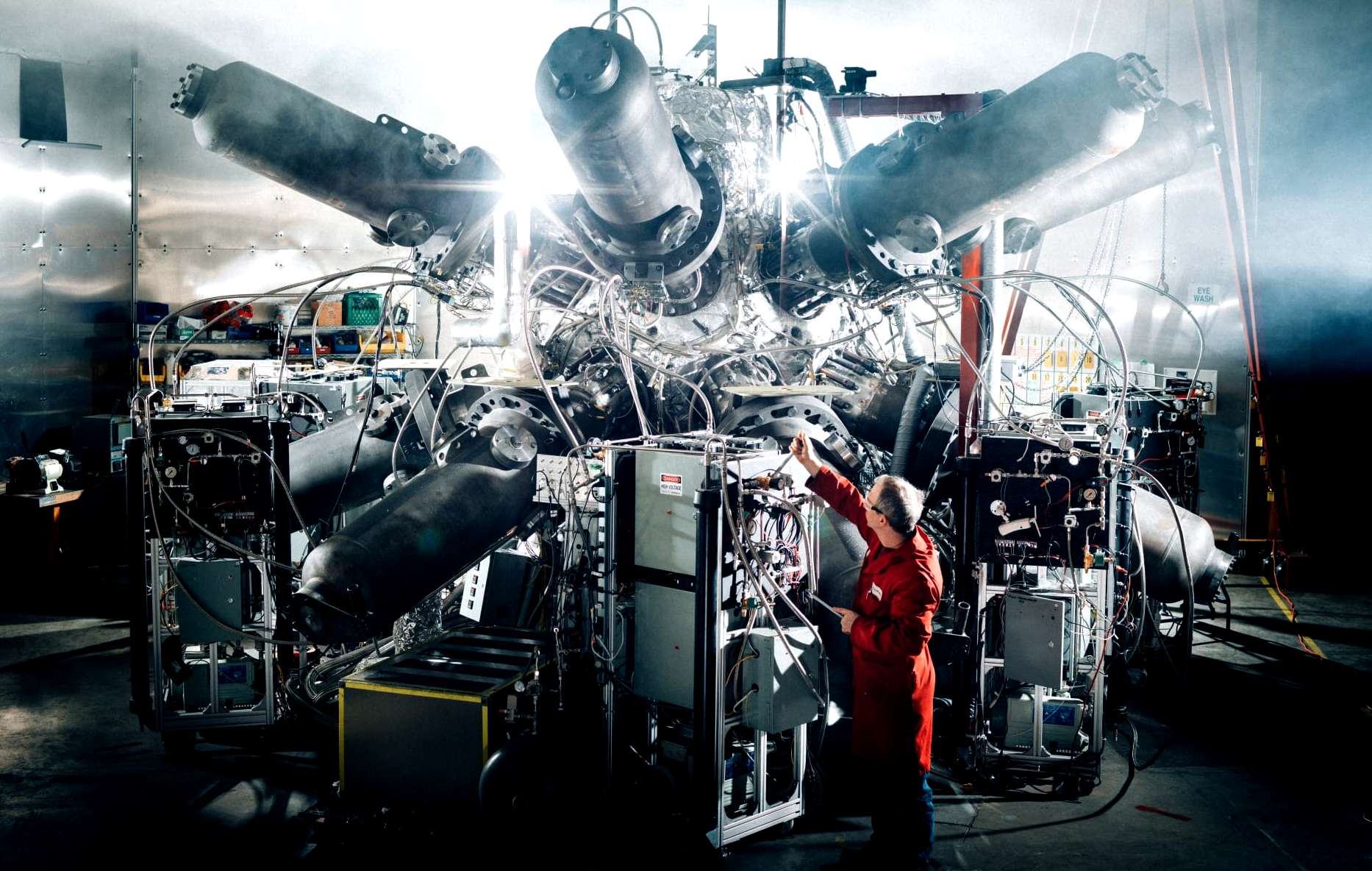|

POWER
HUNGRY -
Although some countries act as though there is no energy crisis, in fact
they have departments for such matters, that are there to advise for how
much longer they can abuse their positions in world politics, to take
advantage of other countries and keep on killing species and warming the
planet - before their kleptocratic
inclinations are compromised. The fact is, we don't need or want nuclear
power polluting our planet with radioactive waste for hundreds of
thousands of years, where it is impossible to manage storage for so
long. Mainly because the companies that are supposed to guarantee our
safety, will cease to exist. Indeed, they will seek to shift contracts
to third parties to escape liability, with no security bonds in place
should (and it will) that happen - because negligent governments (on the
take) are allowing them to escape such essential clauses - or the
projects would almost surely be deemed economically inequitable. In
other words, the taxpayer
will be footing the cleanup bill for the next couple of hundred
years. Such burden in terms of taxes is unsustainable, adding to the
cost of nuclear energy by the back door.
BBC
NEWS 30 OCTOBER 2020 - New nuclear plant at Sizewell set for green light
The government is close to giving the green light to a new nuclear power station at Sizewell in Suffolk.
The BBC has learned that talks with the Sizewell contractor,
EDF, have intensified in recent weeks.
This comes after projects in Anglesey and Cumbria have suffered major setbacks when Japanese firms Hitachi and Toshiba pulled out.
Government officials are insisting that it "remains committed to new nuclear".
Although final approval is subject to a planning process, the final decision rests with the Secretary of State for Business
Energy and Industrial Strategy.
This commitment to new nuclear may be included as part of a 10-point government plan to be published in early November.
That plan is expected ahead of a detailed government white paper in late November which will attempt to set out the course of UK energy policy for decades to come.
Unions have warned that a failure to transfer jobs, skills and new opportunities from the current project under construction at Hinkley Point in Somerset to Sizewell in Suffolk would put thousands of high skilled jobs at risk.
The details of how new reactors at Sizewell will be paid for are still being hammered out.
The government is considering taking an ownership stake and consumers may see a small addition to their bills to pay for the project as it is being built, in order to drive down the costs of financing a project that may cost up to £20bn and take about 10 years to build.
The bigger the government stake, the smaller the call on consumers to "pay as you go" for the development and construction costs.
This funding model has been treated with suspicion before, as opponents say it transfers the risk of delays and budget overruns from the contractor to the consumer and the taxpayer.
However, the BBC understands that the fact Sizewell C is a carbon copy of Hinkley - which has seen work on a second reactor there completed 30% more quickly than the first - is thought to have substantially mitigated that risk.
One of the reasons that the electricity that Hinkley will one day produce is so expensive (£92.50 per megawatt hour, compared with gas and wind at about £40) is that the constructors were required to shoulder the risk of any cost overruns themselves.
EDF estimates that the cost of electricity produced at Sizewell will be somewhere between £40 and £60.
The government hopes that the regular payments from both the government and consumers will encourage private sector investors like pension funds to also take an ownership stake in the project.
There are three reasons that Sizewell C is expected to get government blessing:

1 - Government policy
The government has recently confirmed that it "remains committed to new nuclear" as part of a mix of low-carbon
electricity production. At the moment, Sizewell C is realistically the only horse in the race.
Of the original six sites earmarked a decade ago for a new fleet of nuclear reactors, three
(Wylfa, Moorside and Oldbury) have seen contractors pull out, with only one already under construction at Hinkley Point in Somerset.
Plans for Small Modular Reactors (SMRs) have attracted interest and research investment from the government, but are thought to be many years from being a realistic alternative to big nuclear plants.
Rolls
Royce, which is spearheading this research and development, may disagree, but as one industry source put it, "I don't think that anyone really thinks that SMRs are a thing just yet."
That means Sizewell C is the only realistic option left on the table.
2 - Hitting net zero
Even some of the most prominent evangelists for renewables such as wind and solar privately admit that you can't get to net zero by renewables alone without compromising the stability of the
electricity grid.
There are times when the wind doesn't blow and the sun doesn't shine. It is possible to develop enhanced battery storage and use "smart grid" technology to flick between different renewable sources, but to do that would require billions of investment in a radical redesign of the national grid to provide that kind of flexibility and connectivity.
Nuclear currently supplies more than 20% of all UK electricity and although offshore wind can be expanded enormously, keeping pace with the soaring demand expected for electricity in our transport and heating systems would be asking too much of renewables.
We will need gigantic quantities of low-carbon electricity and when it's built and running, that's what nuclear gives you. The new plants at Hinkley and Sizewell alone are expected to supply 14% of the UK's electricity needs.
3 - Jobs, jobs, jobs
A decision to green-light Sizewell will be welcomed by unions as an important move to preserve jobs and expertise in a high-skilled and well-paid sector.
The union Unite has called on the government to approve the plans, arguing that 10,000 jobs are "in the balance" if the project does not go ahead.
The government recognises this.
Energy industry sources agreed, telling the BBC that there is a "compelling industrial case" for the "lift and shift" of jobs and skills from the plant currently under construction at Hinkley Point in Somerset to Sizewell in Suffolk.
Contractors EDF claim Sizewell will create and support 70,000 direct and indirect jobs throughout the UK.
But there are also problems:
CHINA
Chinese state-owned company CGN already owns a 33% stake in Hinkley Point C in Somerset, currently under construction by French firm
EDF, which owns the other two-thirds.
The Chinese firm also took a 20% stake in the development phase of Sizewell on the understanding it would participate in the construction phase and then land the ultimate prize of building a reactor of its own design at Bradwell in Essex.
Sources within government and the industry say Chinese involvement in designing and running its own design nuclear reactor on UK soil "looks dead", given revived security concerns and deteriorating diplomatic relations after the government's decision to phase out Chinese firm Huawei's equipment from a new generation of telecommunication networks.
If a mobile network is considered too sensitive, it's hard to argue that a nuclear power station is not. Sources close to CGN say the company recognises the new political realities, but still hopes to be able to be an "arm's-length suppler" to the project, having built a similar plant in Taishan which is already up and running.
LOCAL OPINION
Local opinion in Suffolk is mixed. Some residents of the surrounding picturesque and well-heeled villages fear a future of HGVs thundering down country lanes and have mounted campaigns to stop the project.
Others point to the benefits of the many thousands of jobs the project will create in an area that also includes some of the UK's most deprived areas. One Stop Sizewell poster had "Jobs not Snobs" written over it.
TECHNOLOGY OF THE PAST
Opponents of Sizewell say that big nuclear is a technology of the
past. The future lies with a rapid expansion of renewables, along with the development of large-scale battery technology and technology that optimises the supply and demand of energy in real time.
The chairman of Together Against Sizewell C, Pete Wilkinson, argues that "renewables out-compete nuclear on every front - cost, waste, jobs, CO2 and time for deployment".
WHY NUCLEAR ?
Decarbonising our electricity supply is crucial if the UK is to meet its net zero target by 2050.
But at the moment there aren't many choices when it comes to low carbon energy.
The UK isn't a great location for solar power. We don't have much sun, or much land.
Wind, particularly offshore wind, is a much better bet. Boris Johnson has said he expects offshore wind to be able to generate 40GW for the UK by 2030 - more than half current electricity demand.
However, that's already an ambitious target and it is hard to see how the industry could be developed more rapidly than that.
And you've also got the question of what to do when the wind doesn't blow and the sun doesn't shine.
Battery and other energy storage technologies are developing rapidly but are expensive.
Meanwhile, other more dependable low carbon technologies - carbon capture and storage, geothermal, wave and tidal power etc - may be promising but are not yet available at scale.
Leaving nuclear power pretty much the only remaining low carbon option.

NOT EITHER/OR
One of the UK's leading energy experts, Prof Dieter Helm, says some of the numbers on cost are misleading, as basic comparisons underestimate the cost of intermittency (when the wind doesn't blow and the sun doesn't shine) and the necessary changes to the overall design of the energy grid to accommodate the large number of turbines and solar farms you would need to replace the constant flow
(baseload) of energy you get from nuclear power.
"No one thinks nuclear can solve the problem, but it's also hard to see how wind gets you there either and in fact neither of them claim that to be the case. One thing is certain, the government has to stop dithering and start putting some stakes in the ground," he says.
Ultimately, for the government, it is neither desirable nor necessary for this to be an either/or decision. The Committee on Climate Change
(CCC) has said the road to net zero will require a combination of technologies.
It will also cost a lot of money which, one way or another, will be paid by consumers and taxpayers.
Decarbonising the electricity supply is the relatively easy bit. Decarbonising industrial processes and the way we heat our homes is the hard bit. There are 25 million gas boilers in our homes which will need replacing, for a start.
The CCC estimates the cost of getting to net zero by 2050 at a TRILLION pounds. That means spending £30bn a year - every year - for the next 30 years. That's roughly 1.5% of UK GDP. Put that way, it sounds possible but is still a very, very formidable target.
By Simon Jack

..
LONG TERM
INSECURITY
In
the short term we are reliant
on fossil fuels to take us into a
sustainable age where a circular economy is recognized as essential to
harmonious living. Long-term measures to increase energy security center on reducing dependence on any one source of imported energy, increasing the number of suppliers, exploiting native fossil fuel or
renewable energy resources, and reducing overall demand through energy conservation measures.
We
might also enter into international agreements to undermine fossil fuel energy trading
monopolies and assure that everyone has the right to cheap and clean
renewable energy, with the need to transport imports. Those
who held the power and wealth should consider re-investing in alternatives
as they head towards the sustainable economics of zero growth.
The deployment of renewable
energy technologies increases the diversity of electricity sources and contributes to the flexibility of
an international infrastructure system and its resistance to central shocks,
especially where off-grid installations are widely deployed, but can be grid
connected.
It
is likely to be that at some point in the future we will no longer need
power stations that run on coal, oil
or nuclear fuels. We will have dragged ourselves out of the fossil
fuel cesspit and taken power generation from the fortunate few who
profit from geological deposits, to the masses who only need a space to
mount the harvesting medium for energy independence.
For those countries
whose reliance on imported gas is a significant energy security issue, renewable technologies can provide
a level playing field.
As the fossil resources that have been so crucial to human advancement start declining in numbers, countries will
be glad that they changed over to renewable energy. When it comes to decommissioning
a nuclear power plant, or when waste material escapes into the environment,
the nuclear lobby may want to think again.
FUSION
LINKS
& REFERENCE
https://www.newstatesman.com/politics/2013/09/cost-decommissioning-nuclear-power-station
https://www.bbc.co.uk/news/uk-england-somerset-21774652
https://www.theguardian.com/environment/2020/nov/27/uks-nuclear-sites-costing-taxpayers-astronomical-sums-say-mps
https://www.newstatesman.com/politics/2013/09/cost-decommissioning-nuclear-power-station
https://www.bbc.co.uk/news/uk-england-somerset-21774652
https://www.theguardian.com/environment/2020/nov/27/uks-nuclear-sites-costing-taxpayers-astronomical-sums-say-mps
CHAPTERS
| CHARACTERS
| MEDIA
|
MOVIE REF |
SCREENPLAYS
|



